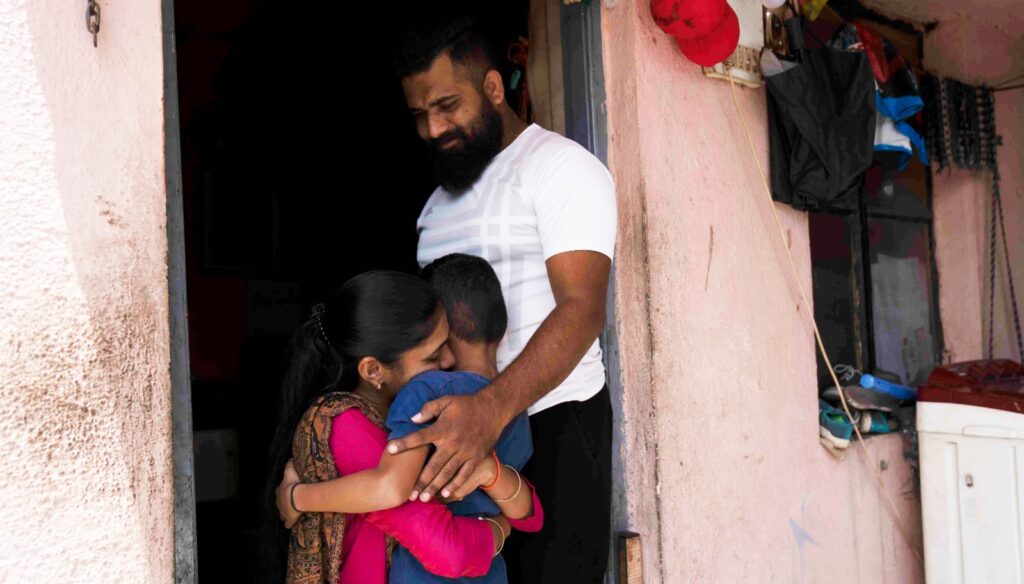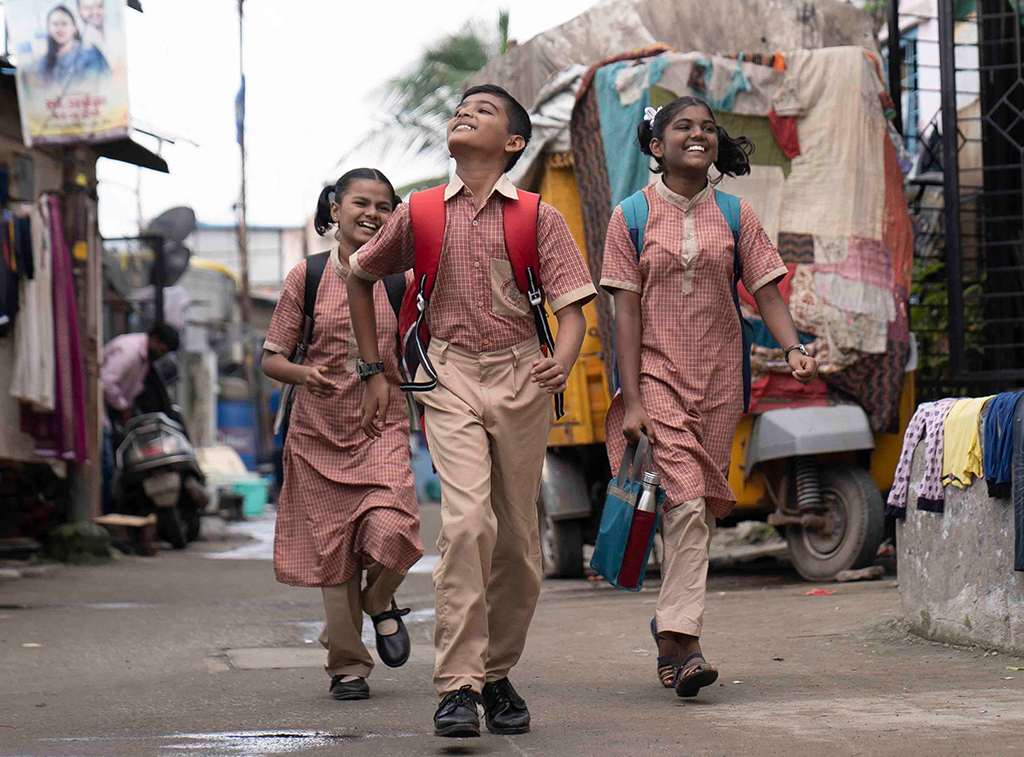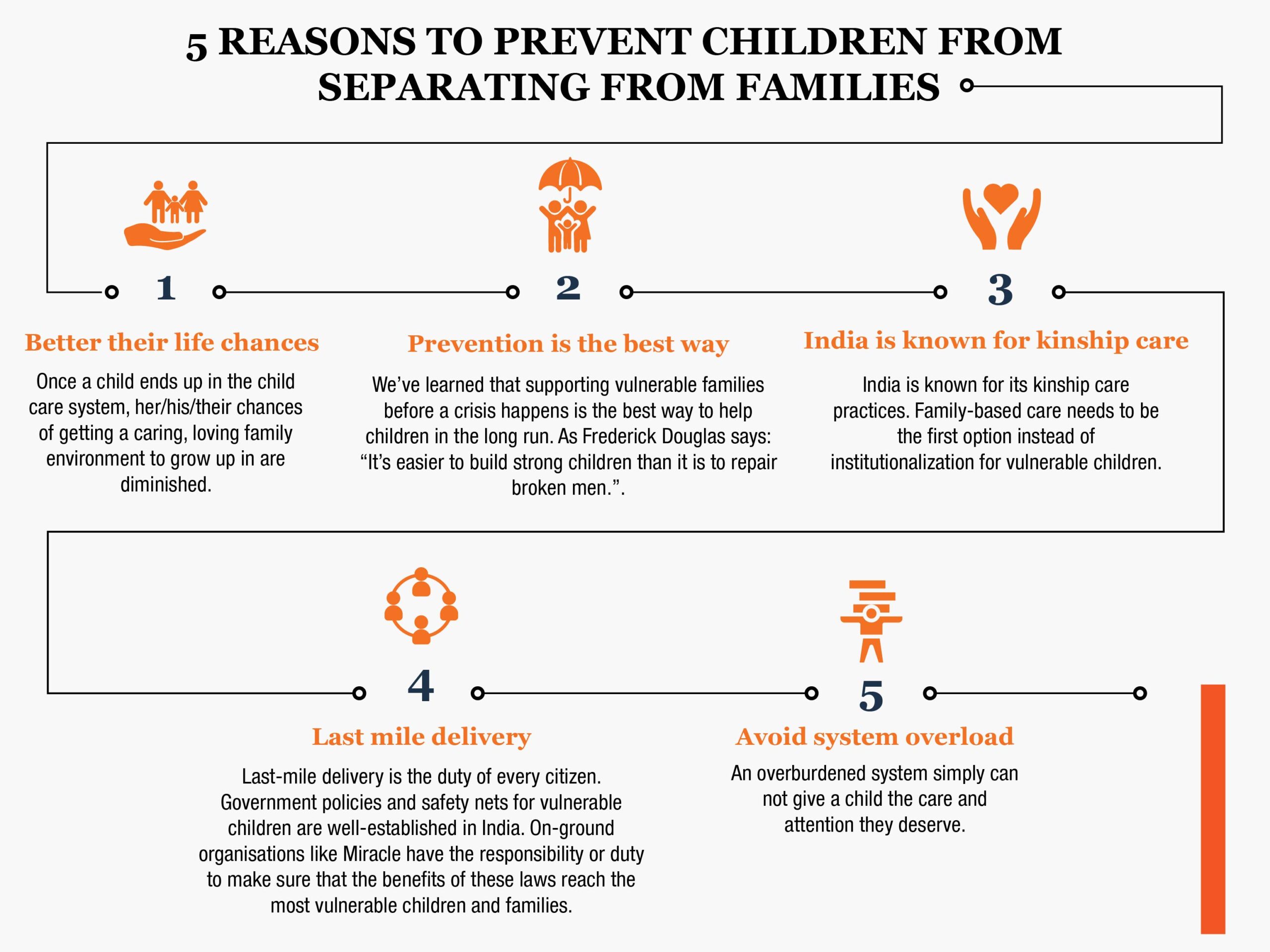
Who we are
Miracle Foundation India helps vulnerable children find safe, stable and permanent families. Whether living within a Child Care Institution or at risk of separation, our mission is a family for every child, in our lifetime. For the past 22 years, Miracle Foundation has improved the lives of more than 164,000 children—but this is just the beginning. Today, we are a worldwide leader ending the need for Child Care Institutions by 2040. To achieve this, we are actively uniting children with families, we are training the social work force to prevent children from entering the child care institutions, and we are creating technology to easily scale our work. We are consistently awarded the highest ratings across all charity watchdog organizations, so you can be confident that Miracle Foundation is transparent, accountable and financially healthy.
Our Founding Story
Miracle Foundation was born on Mother’s Day 2000. Our Founder, Caroline Boudreaux, set off on a trip around the world and found herself at an Indian Child Care Institution (CCI) in a remote village in Odisha. She was haunted by the conditions in which the children from disadvantaged communities lived but captivated by their strength, beauty, and untapped potential. The interaction moved her so much that she decided, then and there, to dedicate her life to help solve this crisis.

The Problem
Key facts: Why we cannot leave vulnerable children behind in our pursuit of the global goals
- There are currently 5.4 million children living in Child Care Institutions worldwide. 3.7 lakh children live in Child Care Institutions in India alone (Ministry of Women and Child Development, Government of India, 2018).
- 80% of children in institutions have a family member they could live with if given support.
- 4 out of 5 children we assess with our Thrive Scale™ have a safe home where they could live. Children want to be in families, not institutions. 80 years of research has shown the negative impact of institutionalization on children’s health, IQ, mental development and life chances (Berens, A., Nelson, C., The science of early adversity: is there a role for large institutions in the care of vulnerable children? The Lancet, 2015).
- Poverty is the main driver of child institutionalization.
- Parents who cannot afford to feed, clothe or send a child to school have very few options without support. (Better Care Network, Global facts about orphanages, 2009, p1.)

6 reasons why we need to prevent children from separating from their families
Once a child ends up in the child care system, her/his/their chances of getting a caring, loving family environment to grow up in are diminished.
We’ve learned that supporting vulnerable families before a crisis happens is the best way to help children in the long run.
India is known for its kinship care practices. Family-based care needs to be the first option instead of institutionalization for vulnerable children.
Last-mile delivery is the duty of every citizen. Government policies and safety nets for vulnerable children are well-established in India. On-ground organisations like Miracle have the responsibility or duty to make sure that the benefits of these laws reach the most vulnerable children and families.
An overburdened system simply can not give a child the care and attention they deserve.
As Frederick Douglas says: “It’s easier to build strong children than it is to repair broken men.”
